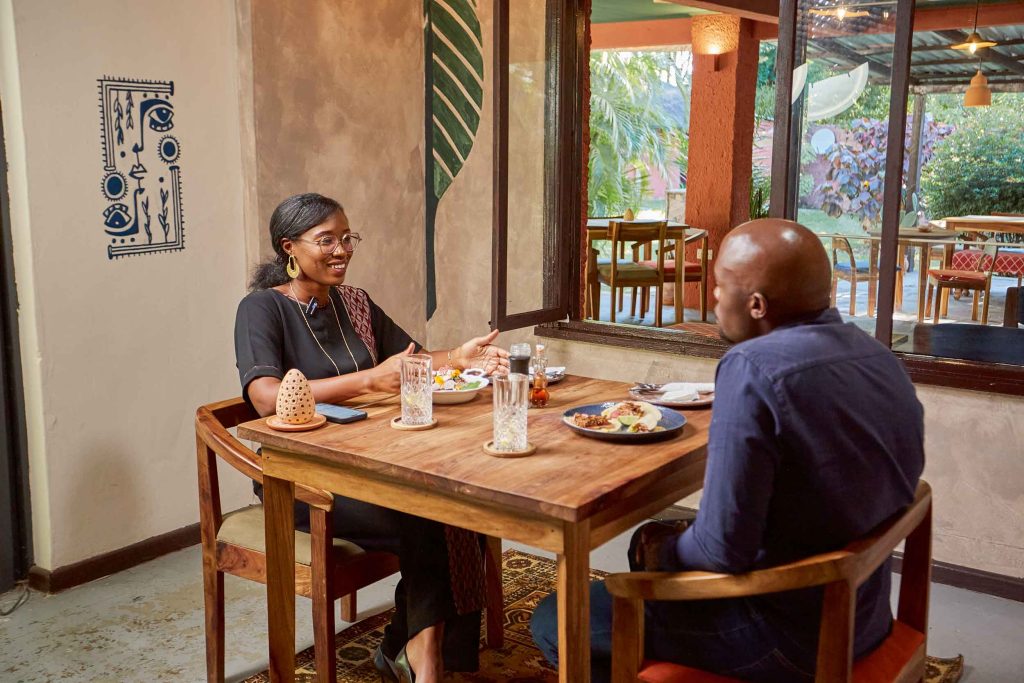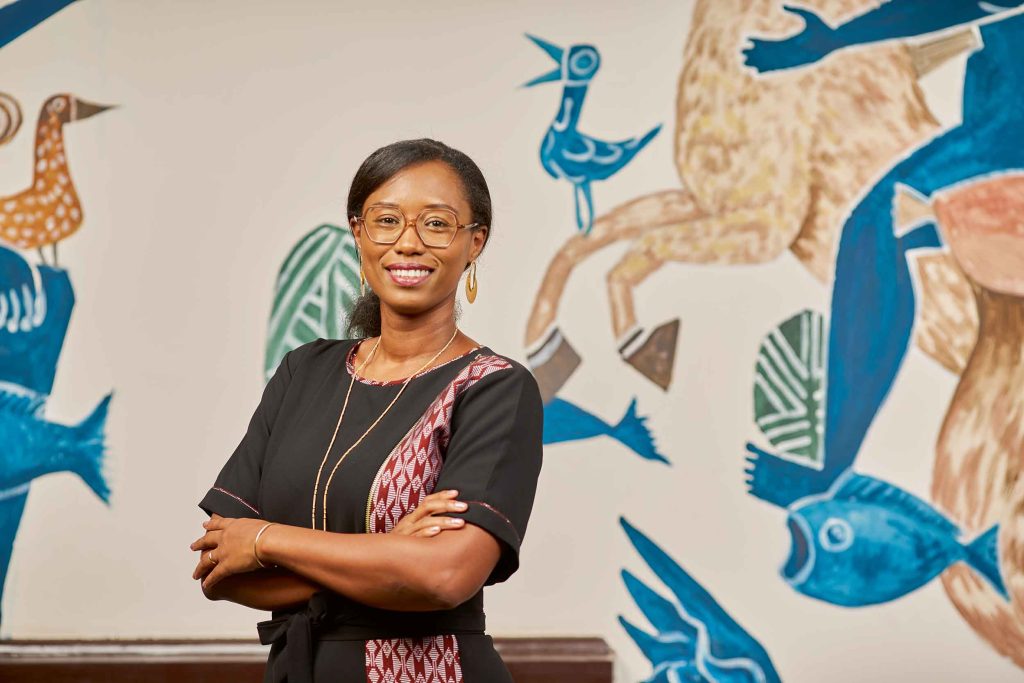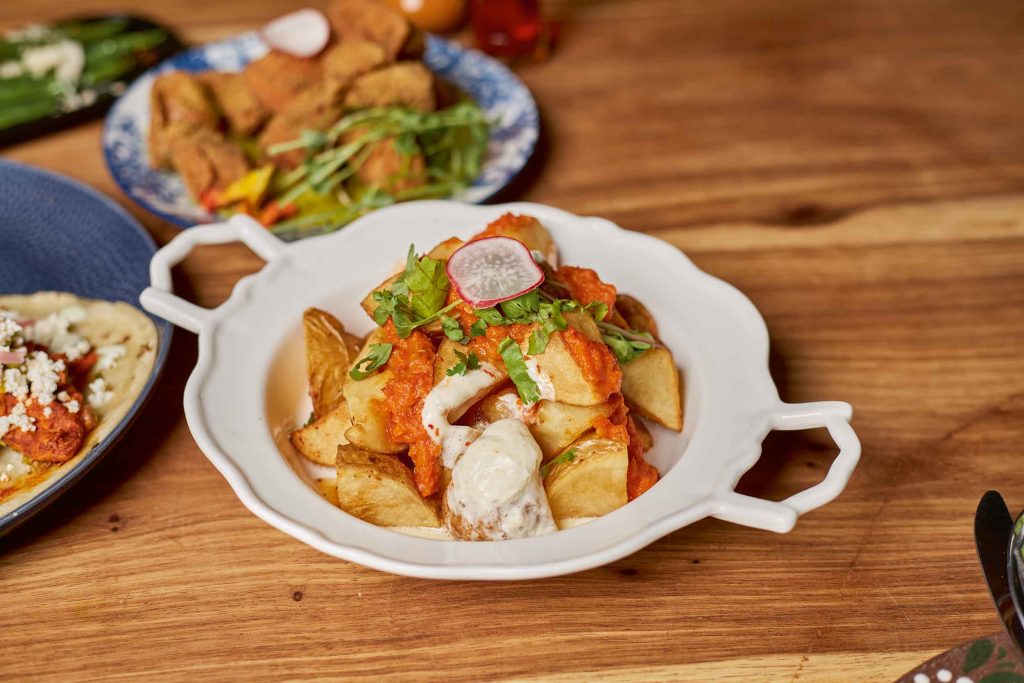Salamata Ball:
The Pan-African CEO
I recently took a road trip with a foreign friend who remarked that Zambia had more filling station brands than he had expected. Intrigued, he began counting the stations dotted along the highway: 12, 13, 14, and so on. By our next stop, he had counted 22 different filling stations. He turned to me and asked, “How do you choose a filling station when there are so many offering the same product?” My answer: “There may be a lot of brands, but there are only two or three at the top. Most discerning Zambians choose from these because they’re trusted for higher quality fuel.”

TotalEnergies Zambia is among the top oil marketing companies in the country. For the last 75 years, TotalEnergies has powered Zambian motorists with quality fuel and has been a pioneer of value-added services, including engine checks, on-the-spot window cleaning, and 24-hour support from the ever-reliable Bonjour convenience stores found at every service station. TotalEnergies has over 55 service stations and employs more than 160 people in Zambia.
Build your support system because it’s critical. Be authentic and make sure you know yourself well. And finally, be pragmatic.
— Salamata Ball,
Managing Director, TotalEnergies Zambia
I sat down for lunch with Salamata Ball, the Managing Director of TotalEnergies Zambia, at Tuyo Restaurant in Kabulonga. It is a fresh new spot offering authentic Latin flavours and a vibrant atmosphere. We began our conversation over pulled pork tacos and a colourful, refreshing Peruvian salad.
Salamata is, without doubt, a true pan-Africanist. Born in Senegal, she grew up in Mauritania, lived in Congo Brazzaville, and attended high school in Togo. She later moved to France, where she completed her undergraduate degree in Business at the renowned HEC Business School in Paris. Her career began in management consulting before pivoting into the finance sector with BNP Paribas. This was a departure from her childhood dream of becoming a doctor.
After her time at BNP, she entered the world of ‘Big Oil’, where she has spent the last 10 years with TotalEnergies . Her journey has been filled with opportunities for growth, culminating in her first Managing Director assignment at TotalEnergies Malawi. Her rise to MD was relatively swift, a testament to her grit and determination even in the face of personal challenges.
“The ambition and willingness to become MD was always at the back of my mind,” she tells me reflectively. “I had been in the company for four years, and I had just had my son. So I set an appointment with my supervisor and told him my goal was to become Managing Director. He told me I wasn’t ready but guided me on how to prepare for the role. Then, he called me a week later and asked if I was ready to go to Malawi as MD.” The rest, as they say, is history.

TotalEnergies’ leadership in Zambia is rooted in values of safety, respect, unity, performance, and a pioneering spirit. The focus on safety, in particular, cannot be overstated given the environmental impact associated with the oil industry. The infamous BP oil spill in the Gulf of Mexico remains vivid in many people’s minds, and the company has struggled to recover from its consequences.
In contrast, TotalEnergies invests in superior technology and high-quality materials at its service stations. “Our value proposition is about safety, quality, and sustainability. We all build service stations, but we pay attention to the technology we use. For example, we install double-walled underground tanks with secondary protection to prevent leaks,” she explains. While most customers may not notice these added layers of safety, they ensure the long-term preservation of both vehicles and the environment.
Beyond providing quality lubricants and fuels, TotalEnergies also impacts the communities it serves. Salamata shares details about the “Young Dealer Programme”, which supports entrepreneurial-minded TotalEnergies employees in their aspirations to run their own service stations. Zambia currently has 44 stations operated by these ‘young dealers’, who receive technical and financial training, team coaching, and operational capital to become fully-fledged business owners.
As one of the growing number of female leaders in Zambia, Salamata is helping shape corporate narratives around gender inclusivity. But she acknowledges that there is still work to be done. “Statistics show that women are 20 percent less likely to be promoted than men, which creates an imbalance,” she explains. “For me, it’s not about gender, but about delivering beyond expectations and maintaining discipline, focus, and ambition. Sometimes, as women, we are hesitant to express our ambitions and expect others to notice our good work. We need to be bold and ask for those promotions, knowing that inequality exists.”
When asked how her team would describe her leadership style, she says, “I think they would call me a participative leader who consults and discusses issues. They would also say I am decisive, focused, and results-oriented.” She practises situational leadership, which she applied when she arrived in Zambia during a period of fuel shortages and price increases following the removal of subsidies. “In such situations, you need a more pace-setting approach. The rhythm must be faster, and you need to apply pressure to achieve results sooner.”
Outside of work, Salamata finds balance in her family. She enjoys spending time with her husband and two children, who have supported her transitions across Paris, Senegal, Malawi, and Zambia. Her mother, an accountant turned stay-at-home mum, has also been a pillar of support. On each move, her mother spent the first few months helping run the household so Salamata could focus on settling into work. “If you don’t invest in that support system, it is very difficult to succeed, especially as a woman,” she says. She also credits her leaders at TotalEnergies, who encouraged her to settle in before facing the pressure of performance.
Nearly two years into her role, Salamata is thriving. She credits the warmth of the Zambian people with easing her transition. Her upbringing in multiple African countries has sharpened her adaptability, which she sees as a key leadership trait. Food has also been part of her cultural adjustment, particularly Zambia’s staple, nshima. Laughing, she says, “The nshima, you mean? I knew about nshima before coming here because my parents lived in Zimbabwe. But my kids discovered it here, and now they love it more than rice. I always wonder how people manage to work after eating nshima because it’s so filling!”

As our conversation comes to a close, I ask Salamata what advice she would give to young people aspiring to leadership. She offers three pieces: “Build your support system because it’s critical. Be authentic and make sure you know yourself well. And finally, be pragmatic. Remove the idea of being perfect. You can have it all, just not at the same time.”
Sometimes, as women, we are hesitant to express our ambitions and expect others to notice our good work. We need to be bold and ask for those promotions.
— Salamata Ball,
Managing Director, TotalEnergies Zambia
From the Top Shelf
If Salamata could only read two books for the rest of her life, they would be Amkoullel, the Fula Boy by Malian author Amadou Hampâté Bâ and The Promise of Dawn by Romain Gary.
Child of the Soil
Salamata’s upbringing and career have taken her across the continent. She was born in Senegal, raised in Mauritania, lived in Congo Brazzaville and Zimbabwe, attended high school in Togo, and has worked in Senegal, Malawi, and now Zambia.
It Takes a Community
She believes in building a strong support system. From family to work leadership, these are the people who help make success possible.
An Adaptive Leader
Salamata practises a participative and situational leadership style. She balances consultation and collaboration with decisiveness when urgency demands it.

TUYO RESTAURANT
Tuyo has blossomed in the heart of Lusaka, a modern Latin American kitchen and cocktail bar where the lines between food, cocktails, art, and community blur into a vibrant gathering. The scent of freshly grown herbs and vegetables fills the air— from Tuyo’s own garden, only steps away from the kitchen. The tables and chairs, sculpted from locally sourced wood, seem to tell stories of the land they come from. Surrounding diners is a gallery of bold, colorful works by local artists, their brushstrokes breathing life into the walls. At Tuyo, every gathering tells a story of cultures meeting, rooted in the soul of Lusaka.



